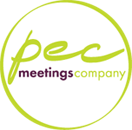New Meeting Planning Approaches Emerge from Great Recession
BizTimes Milwaukee, February 2015
by Erica Breunlin
While the corporate event planning industry has significantly rebounded since trudging through the Great Recession, the sector has not completely surfaced from the economic downturn, according to Denice Waldhuetter, co-owner and vice president of Milwaukee-based PEC Meetings Co.
Waldhuetter has certainly noticed an uptick in meetings as companies recognize the value of sharing ideas in person.
“Face-to-face meetings deliver ideas and content in a way that there is expression and in a way that there is no misperception,” Waldhuetter said, adding that a focus on quality event content has become a leading industry trend.
However, companies today still scrutinize the dollars and cents they pump into their corporate events – a consequence of the budget struggles they battled during the recession years. During pre-recession days, meeting expenses were not as clearly defined for third-party meeting planning companies, according to Waldhuetter.
“The expenditures were not as highly scrutinized because they didn’t need to be,” she said.
But as companies found themselves cutting corners with other business priorities, they constrained budgets reserved for corporate events, which often translated into shorter get-togethers and little extravagance, Waldhuetter said.
Dave Larson, director of convention services at VISIT Milwaukee, has also noticed a resurgence of the meeting planning industry, though he agrees that it is, and probably always will be, in the process of recovery. While event funding is much closer to pre-recession levels, “nothing’s ever going to be exactly the way it was before,” Larson said.
Along with smaller budgets, the “perception equation” caused a shift in approaches to event planning during the recession, Waldhuetter said.
“That (equation) means that (companies) are sensitive to the fact that in a down economy, lavish meetings may be seen as inappropriate,” she said.
Largely due to the perception factor, companies abandoned a lot of the extra features of meetings and conferences from days past, including high-end meal functions, receptions and additional days to spend in town.
“Those sorts of things all dissipated quite a bit,” Larson said.
The recession also largely reshaped contracts.
As event attendance diminished, companies often struggled to fulfill contractual agreements set forth by their venue partners, Waldhuetter said.
“It was difficult for companies to be able to meet the food and beverage minimums as well as their sleeping room minimum requirements,” she said.
While companies were often penalized for their event attrition with fees for monetary damages, many companies and third-party planners also had to spend time renegotiating contracts, which hotels became more open to as they felt the ripple effects of the recession. Now, more and more events are booked within a shorter window as companies want to avoid risk in planning meetings so far in advance, Larson said.
Additionally, new contractual clauses have popped up that help protect a company’s bottom line, Waldhuetter said. One allows a company to incorporate a room block review, so if it is planning an event a few years in advance it can review its hotel contract a few months ahead of time to adjust its needs.
Looking ahead through 2015 and beyond, area event planners are bullish for the industry, particularly as the number of meetings Milwaukee hosts picks up. According to Waldhuetter, PEC Meetings expects the number of corporate meetings held in Milwaukee to increase by 10 percent in 2015.
That represents a significant spike from recession days, which included a “standstill” of Milwaukee events in 2009, 2010 and 2011, Waldhuetter said.
Additionally, hotel occupancy rates have continued to climb in Milwaukee, even with the recent influx of several thousand hotel rooms, Larson said. According to VISIT Milwaukee, the percentage of occupied hotel rooms in Milwaukee County has steadily increased over the past six years, up to 65.7 percent in 2014.
“As the economy keeps coming back and unemployment stays down, (the meeting planning industry is) an industry that’s going to keep coming back strong,” Larson said.







